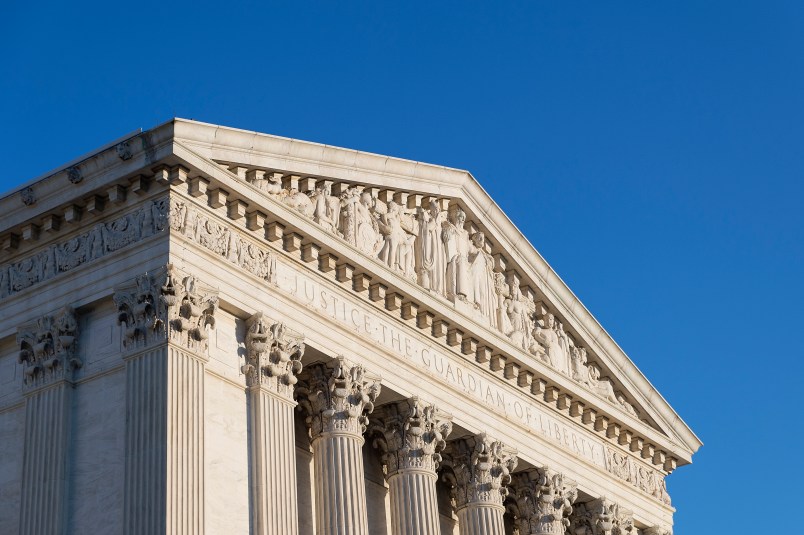In a sign that could spell more trouble for presidential oversight efforts, the Supreme Court on Monday signaled that it was not even sure whether the judicial branch had the authority to settle disputes over congressional subpoenas issued for President Trump’s financial documents.
The court issued an order that the parties in pending blockbuster Trump subpoena cases submit additional briefing papers addressing the question.
“The parties and the Solicitor General are directed to file supplemental letter briefs addressing whether the political question doctrine or related justiciability principles bear on the Court’s adjudication of these cases,” the order said.
If the Supreme Court ultimately decided that it did not have the authority to resolve the disputes, the effect of such a ruling could cut both ways for the President.
In the context of these specific cases, it could mean that he could not go to court to block his accounting firm and his banks from producing the subpoenaed documents. But in the long term such a decision would empower Trump’s stonewalling of subpoenas, as Congress would not be able to go to court to force him —or future Presidents — to comply with lawmakers’ subpoenas.
The Supreme Court’s Monday request echoed the logic that a three-judge appellate panel employed earlier this year while refusing to enforce Congress’ subpoena of former White House Counsel Don McGahn.
In that case, the appeals court panel said that the Constitution forbid the judiciary from resolving informational disputes between two branches of government.
That decision — which was panned by a bipartisan group of lawmakers and veterans of previous administrations — is being reviewed by the full U.S. Court of Appeals for the D.C. Circuit, which is holding oral arguments in the case on Tuesday.
The cases in front of the Supreme Court are Trump’s challenges of subpoenas issued by Congress and by New York local prosecutors for documents from his accounting firm and banks. The additional briefing ordered Monday is due on May 8 and the cases’ oral arguments — which will be conducted via teleconference — are scheduled for May 12.



